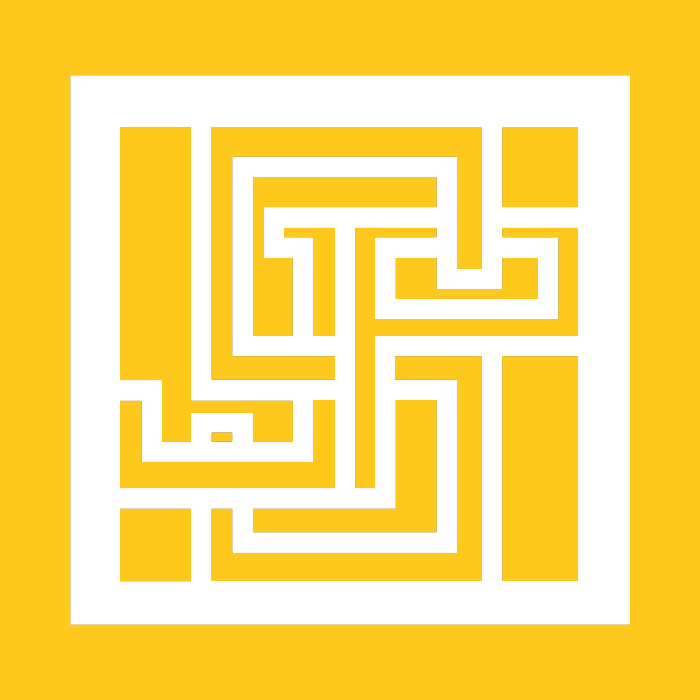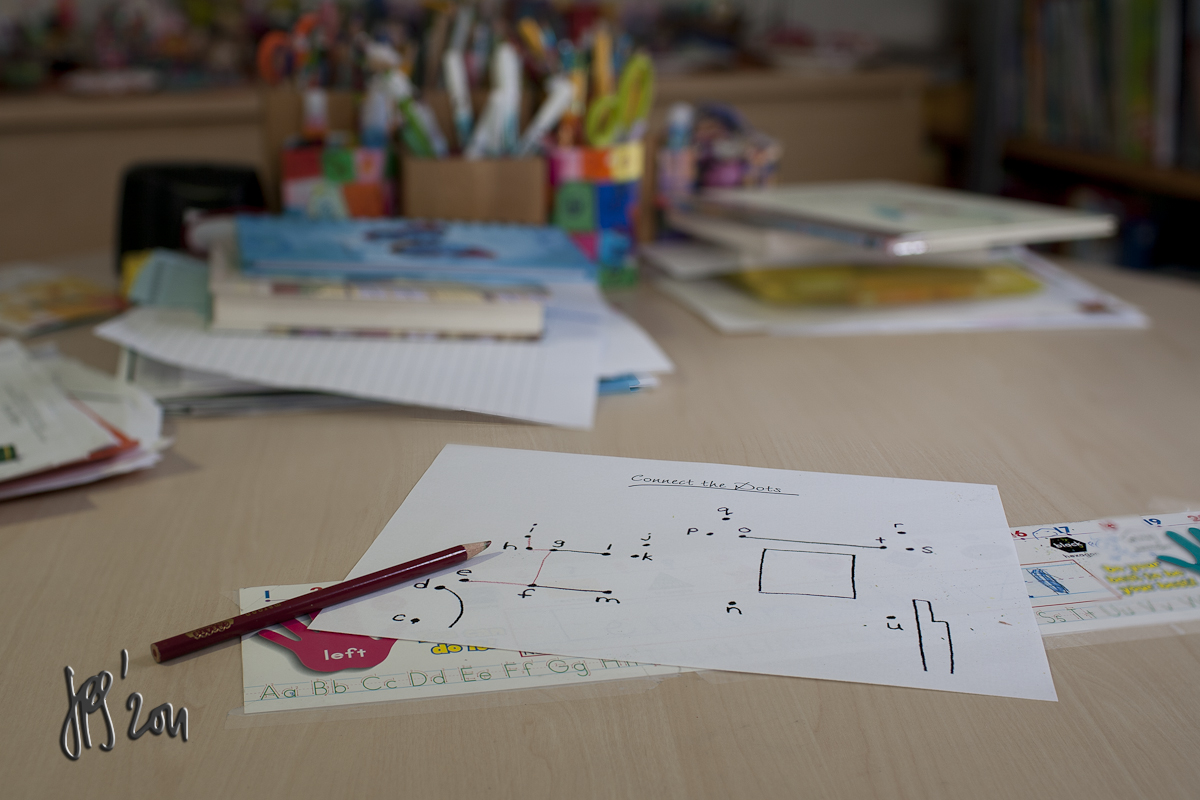Connections
Date: 04/25/2011
Focal Length: 35 mm, multiple exposures at different focal points
Exposure: 1/25 sec at f/3.5, ISO 100
As I am sitting in an uncomfortable but overpriced airplane seat rushing to Los Angeles on an early Saturday morning to take part in the celebration of this year’s cinematic achievements, I find the opportunity to spend time with an essay titled “The Spanish Armadillo” by Lewis Lapham. The following sentence draws my particular attention:
“Knowledge becomes a matter of instantly recognizing patterns rather than an act of sequential thought.”
The statement takes me back to a Sunday morning several years ago. For a sweet moment I forgot the worries of the week, reading something which must have been rather unimportant as I can’t remember the content when, without any specific intent, I looked up watching my daughter, almost four years old, sitting at my desk completing a picture by numbers. I was fascinated to see her decipher the sequence, linking each point with a fine pencil line. After she advanced about half way through her quest, her eyes brightened as her hand pushed the pencil faster and faster to the next anchor point. She obviously visualized the completed image in her mind. As she finished the image flawlessly without identifying the digits, I recognized in her face the pleasure about her achievement.
That was a proud moment of a father accompanied by a bigger realization.
That was a proud moment of a father accompanied by a bigger realization.
Are we sufficiently fostering contextual thinking? Allow me to explain. Our educational institutions focus on knowledge accumulation and prepare the young brains to recite information through patterns. In that respect I sadly agree to Mr. Lapham’s observation. I also consent that sequential thinking became rare but I fear that at the same time it became often the highest forms of mental agility. That is simply not sufficient to meaningfully deal with complexity. It is a critical mental skill to step out of a mechanical and sequential thinking process to cognitively comprehend inter-dependencies and draw conclusions.
While comprehensive knowledge is of utmost importance, we should consider enhancing the educational process by challenging children’s imagination, reading to them, exploring their surrounding and traveling with them to places where they could discover and ask us “why”. Why is such a wonderful word but became so confusing for many. In the age of digital knowledge, curiosity as well as doubt is at risk. The truth is with Google. Too often do we miss to ask “why” or simply respond with silence.


